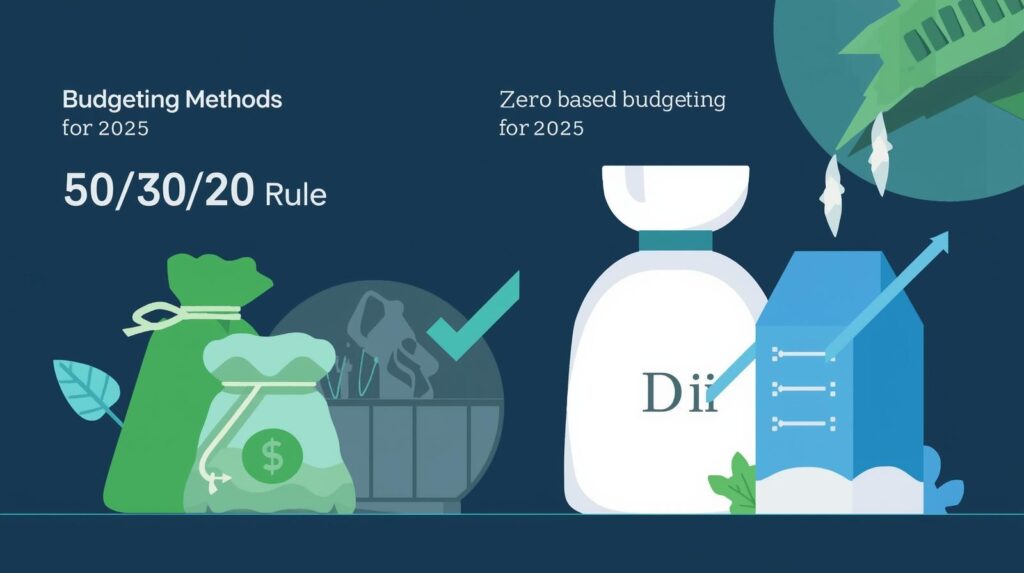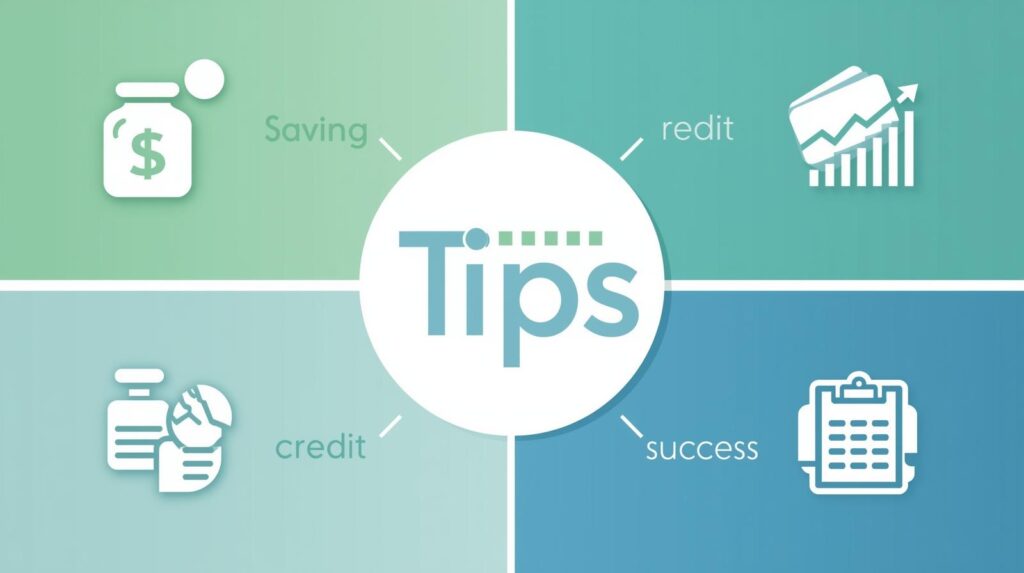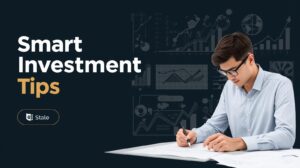Table of Contents
Why Your Money Strategy Needs a 2025 Update
Personal Finance Tips 2025 aren’t just recycled advice from last year – the financial landscape has shifted dramatically, and your money habits need to keep up. With inflation still making your wallet cry, interest rates doing their unpredictable dance, and new technology changing how we handle money, it’s time to get serious about your finances.
Here’s the thing: most people approach personal finance like it’s some complicated puzzle only accountants can solve. But honestly? Managing your money well comes down to a few solid principles and the discipline to stick with them. Whether you’re drowning in student loans, trying to figure out this whole “investing” thing, or just want to stop living paycheck to paycheck, these Personal Finance Tips 2025 will set you on the right path.
Let’s ditch the boring finance textbook talk and get into strategies that actually work in the real world – you know, where rent is due, groceries cost a fortune, and everyone’s telling you to “just save more” like it’s that simple.
Master the Budget That Doesn’t Feel Like a Budget
Look, I get it – the word “budget” makes most people want to run for the hills. It sounds restrictive, boring, and like you’ll never enjoy anything ever again. But here’s the secret: the best budget is one that doesn’t feel like you’re punishing yourself.
The 50/30/20 Rule (But Make It Flexible)

You’ve probably heard about the 50/30/20 rule, and it’s one of those Personal Finance Tips 2025 that still holds up because it’s so simple. Here’s the breakdown:
- 50% for needs: Rent, groceries, utilities, insurance – the stuff you absolutely can’t skip
- 30% for wants: Streaming services, dining out, that coffee habit you swear you’ll quit (but won’t)
- 20% for savings and debt: Emergency fund, retirement, paying off those credit cards
Now, here’s where it gets real: these percentages aren’t set in stone. Living in an expensive city? Your needs might be 60%. Entry-level job? Maybe you can only swing 10% for savings right now. The key is having a framework and adjusting it to your actual life, not some theoretical perfect scenario.
Zero-Based Budgeting: Every Dollar Has a Job
This approach means you’re assigning every single dollar you earn to a specific category before the month even starts. Sounds intense, right? But it’s actually weirdly satisfying once you get the hang of it.
Here’s how it works: let’s say you make $4,000 a month. You literally plan out where all $4,000 will go – rent, food, savings, fun money, everything – until you hit zero. It doesn’t mean you spend it all; it means you’ve made intentional decisions about every dollar.
| Budgeting Method | Best For | Difficulty Level | Flexibility |
|---|---|---|---|
| 50/30/20 Rule | Beginners, simple lifestyle | Easy | High |
| Zero-Based Budget | Detail-oriented people | Medium | Medium |
| Envelope System | Cash spenders, visual learners | Easy | Low |
| Pay Yourself First | Automated savers | Easy | High |
Automate Everything (Seriously, Everything)
One of the smartest Personal Finance Tips 2025 I can give you? Stop relying on willpower and start relying on automation. Set up automatic transfers to your savings account the day after payday. Automate your bill payments. Automate your retirement contributions.
Why? Because future you is tired, stressed, and will definitely find a reason to “just skip this month.” Past you, setting up automation when you’re feeling motivated, is the hero future you needs.
Emergency Funds: Your Financial Safety Net
Let’s talk about everyone’s least favorite topic: emergency funds. I know, I know – saving money for something that might not happen feels counterintuitive when you’ve got immediate needs. But trust me, unexpected expenses are a matter of when, not if.
How Much Do You Actually Need?

The traditional advice says 3-6 months of expenses. But let’s break that down based on your actual situation:
- Single income, unstable job: Aim for 6-12 months (yeah, that’s a lot, but layoffs happen)
- Dual income, stable jobs: 3-6 months is solid
- Freelancer or gig worker: 6-12 months minimum (irregular income means bigger buffer)
- Just starting out: Get $1,000 first, then build from there
Where to Keep Your Emergency Fund
This is crucial: your emergency fund needs to be accessible but not too accessible. You don’t want it in your checking account where you’ll “borrow” from it for non-emergencies. According to Investopedia’s emergency fund guide, high-yield savings accounts are your best bet right now – you’re earning interest while keeping the money liquid.
In 2025, with interest rates still relatively high, you can actually earn decent returns on savings accounts. We’re talking 4-5% APY at some online banks. That’s free money just for parking your emergency fund in the right place.
Debt Management: Stop Letting Interest Eat Your Money
Debt isn’t inherently evil – sometimes it’s necessary. But bad debt management? That’ll keep you broke forever. These Personal Finance Tips 2025 focus on getting strategic about what you owe.
The Avalanche vs. Snowball Debate
Two popular methods for tackling debt, and honestly, both work – it’s about what motivates you:
Debt Avalanche: Pay off highest interest rate debts first. Mathematically optimal, saves the most money. But it can feel slow if your highest-interest debt is also your biggest balance.
Debt Snowball: Pay off smallest debts first, regardless of interest rate. Not mathematically perfect, but psychologically? It’s gold. Knocking out small debts gives you wins that keep you motivated.
Here’s my take: if you’re someone who needs quick wins to stay motivated, go snowball. If you’re disciplined and motivated by knowing you’re optimizing every dollar, go avalanche. Neither is “wrong.”
Credit Cards: Use Them, Don’t Let Them Use You
Credit cards get a bad rap, but used responsibly, they’re powerful tools. The key word? Responsibly.
- Pay in full every month: Never carry a balance if you can avoid it. That 20%+ interest is robbery
- Use rewards strategically: Cash back on groceries? Travel points? Pick what matches your spending
- Keep utilization under 30%: For your credit score’s sake, don’t max out your cards
- Set up autopay: At least the minimum, so you never miss a payment
Investing for Regular People (No Finance Degree Required)
Investing feels intimidating, but it’s one of those Personal Finance Tips 2025 that separates people who build wealth from people who just tread water. And no, you don’t need thousands of dollars to start.
Start With Retirement Accounts
If your employer offers a 401(k) match, you better be taking it. That’s literally free money. Not taking employer match is like turning down a raise. Don’t do it.
Here’s the priority order for retirement saving:
- 401(k) up to company match: Always, always, always get the full match
- Roth IRA: Max this out if possible ($7,000 for 2025). Tax-free growth is amazing
- Back to 401(k): After maxing Roth IRA, increase 401(k) contributions
- Taxable brokerage: Once retirement accounts are maxed
Index Funds: Your New Best Friend
Forget trying to pick individual stocks. Unless you’re prepared to spend hours researching companies and timing the market (which even professionals struggle with), index funds are your answer.
What’s an index fund? Basically, it’s a fund that tracks a market index like the S&P 500. You’re buying a tiny piece of hundreds of companies with one purchase. Diversification without the headache.
As Forbes explains in their investing guide, index funds consistently outperform actively managed funds over the long term, with way lower fees. It’s boring, but boring wins in investing.
Don’t Try to Time the Market
Market down? Keep investing. Market up? Keep investing. Trying to time the market is a great way to miss gains or lock in losses. Time in the market beats timing the market – that’s not just a catchy phrase, it’s backed by decades of data.
Smart Spending: Because You Can’t Budget Your Way to Wealth Alone
Here’s an uncomfortable truth in most Personal Finance Tips 2025 articles: sometimes the problem isn’t your spending, it’s your income. But while you’re working on increasing income, let’s optimize spending.
The Big Three: Housing, Transportation, Food
These three categories eat most people’s budgets. Small optimizations here create big results:
Housing: The old rule was 30% of income on housing. In 2025? Good luck in most cities. But seriously evaluate if you need that extra bedroom or if a roommate for a year would fast-track your financial goals.
Transportation: Car payments, insurance, gas, maintenance – it adds up fast. Could you survive with one car instead of two? Is that brand new car necessary or would a reliable used car do the job?
Food: I’m not saying eat ramen every meal, but meal planning and cooking at home even 3-4 times a week instead of eating out saves hundreds monthly. That’s thousands annually.
Subscriptions: The Silent Budget Killer
When’s the last time you actually used that gym membership? Or watched anything on that third streaming service? Subscriptions are sneaky because $10 here and $15 there doesn’t feel like much, but multiple subscriptions add up to real money.
Do a subscription audit right now. Cancel what you don’t use. You can always resubscribe later if you miss it (spoiler: you probably won’t).
Building Multiple Income Streams
One of the most important Personal Finance Tips 2025 is recognizing that in this economy, depending on one income source is risky. You don’t need to quit your job and become an entrepreneur, but diversifying income provides security and speeds up wealth building.
Side Hustle Ideas That Actually Work
- Freelancing your existing skills: Writer? Designer? Coder? There’s a gig economy waiting
- Online tutoring: If you’re good at anything teachable, someone will pay to learn it
- Rental income: Got a spare room? Parking spot? Storage space? Rent it out
- Digital products: Create once, sell forever – templates, courses, photography
- Dividend investing: Passive income from stocks that pay dividends
The Long Game: Career Development
Don’t overlook the income stream you already have – your primary job. Investing in yourself through skills development, certifications, or networking can lead to promotions, raises, or better job opportunities. Sometimes the best financial move is asking for that raise you’ve been avoiding.
Conclusion: Your Financial Future Starts Today
Look, implementing all these Personal Finance Tips 2025 at once would be overwhelming and probably unsustainable. The secret? Start small. Pick one or two areas where you’re struggling most and focus there.
Maybe it’s finally building that emergency fund. Or automating your savings so you stop “forgetting” to transfer money. Or just tracking where your money actually goes for one month without judgment – awareness alone creates change.
Personal finance isn’t about deprivation or never enjoying life. It’s about being intentional with your money so it works for you instead of you constantly stressing about it. It’s about having options and security instead of living one unexpected expense away from crisis.
The best time to start was yesterday. The second best time is right now, today. Your future self is rooting for you.
Want more money management strategies and financial advice? Check out our Related Post in Personal Finance for more tips on building wealth and achieving financial independence.
Ready to take control of your finances in 2025? Start by implementing just one tip from this guide today – your bank account will thank you later.
Frequently Asked Questions About Personal Finance Tips 2025
What are the most important Personal Finance Tips 2025 for beginners?
Start with the basics: create a simple budget using the 50/30/20 rule, build a $1,000 emergency fund, and set up automatic savings transfers. Don’t try to do everything at once. Focus on these three foundational steps, and you’ll have a solid base to build on. Also, if your employer offers a 401(k) match, contribute at least enough to get the full match – that’s free money you can’t afford to leave on the table.
How much should I save from each paycheck according to Personal Finance Tips 2025?
Ideally, aim for 20% of your income going toward savings and debt repayment combined. But be realistic – if you’re starting from zero, even 5% is progress. The key is consistency and gradually increasing that percentage as you pay off debts or get raises. Set up automatic transfers for the day after payday so you’re “paying yourself first” before spending money shows up in your checking account.
Are high-yield savings accounts worth it for Personal Finance Tips 2025?
Absolutely yes. With interest rates still relatively high in 2025, many online banks offer 4-5% APY on savings accounts. That means if you have $10,000 in emergency funds, you’re earning $400-500 annually just for keeping your money there instead of a traditional bank paying 0.01%. It’s free money with zero risk – definitely worth the 20 minutes it takes to open an account.
What’s the biggest mistake people make with Personal Finance Tips 2025?
Waiting for the “perfect time” to start. People think they’ll begin saving when they earn more, pay off debt when circumstances improve, or invest when they “understand it better.” Reality check: there’s never a perfect time. Start with what you have, where you are. Even small actions compound over time. The biggest mistake isn’t making imperfect financial moves – it’s making no moves at all.
How do I stick to Personal Finance Tips 2025 when everything feels expensive?
Focus on progress over perfection. Some months you’ll nail your budget, others you’ll blow it – that’s life. The key is automation (so good habits happen without willpower), tracking your spending (awareness creates change), and celebrating small wins. Also, build flexibility into your budget for real life situations. A budget that’s too restrictive will fail; one that balances goals with enjoyment is sustainable. Remember, personal finance is a marathon, not a sprint.




